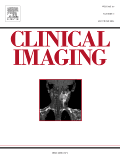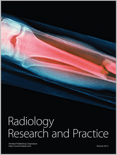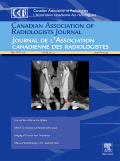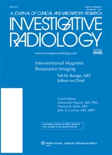
Clinical Imaging
Scope & Guideline
Empowering Insights in Nuclear Medicine and Imaging
Introduction
Aims and Scopes
- Innovative Imaging Techniques:
The journal regularly publishes studies on the development and evaluation of novel imaging modalities and techniques, including advancements in MRI, CT, ultrasound, and radiomics. - Artificial Intelligence in Radiology:
A significant focus is placed on the incorporation of artificial intelligence and machine learning in imaging, including automated detection, diagnostic support systems, and workflow optimization. - Clinical Applications and Outcomes:
Research often highlights the practical applications of imaging in various clinical scenarios, assessing how imaging influences diagnosis, treatment planning, and patient management. - Multimodality Imaging:
The journal covers studies that utilize a combination of imaging modalities to improve diagnostic capabilities in complex cases, particularly in oncology and cardiovascular disease. - Patient-Centered Research:
Submissions often address the patient experience, including studies on patient safety, satisfaction, and the impact of imaging on treatment outcomes.
Trending and Emerging
- COVID-19 Related Imaging:
Research focusing on the imaging characteristics, complications, and management of COVID-19 patients has surged, reflecting the pandemic's impact on radiology. - Radiomics and Quantitative Imaging:
There is a growing trend in studies utilizing radiomics, where quantitative analysis of imaging data is used to predict outcomes, enhance diagnosis, and tailor treatment plans. - Diversity and Inclusion in Radiology:
Emerging themes emphasize the importance of diversity and inclusion within the field, addressing disparities in healthcare access, representation in research, and the impact of social determinants on imaging practices. - Integration of AI and Machine Learning:
The implementation of AI and machine learning technologies in imaging for diagnostics and workflow efficiency is a rapidly growing area of research, reflecting the technological advancements in healthcare. - Patient-Centered Imaging Approaches:
Research increasingly focuses on how imaging impacts patient care, including studies on patient safety, satisfaction, and the role of radiologists in multidisciplinary teams.
Declining or Waning
- Traditional Imaging Techniques:
There has been a noticeable decrease in publications focusing solely on conventional radiographic techniques, as the field moves towards more advanced imaging modalities and technologies. - Basic Imaging Physics:
Topics centered on fundamental imaging physics principles are appearing less frequently, likely overshadowed by research emphasizing clinical applications and technological advancements. - Non-Clinical Research:
Research that does not directly relate to clinical outcomes, such as purely theoretical studies or those focused on the technical aspects of imaging without implications for practice, is becoming less common.
Similar Journals

Radiology Research and Practice
Innovating practices for a healthier tomorrow in radiology.Radiology Research and Practice is an esteemed journal dedicated to advancing the field of radiology through pioneering research and innovation. Published by HINDAWI LTD, this journal has been an Open Access platform since 2011, ensuring that cutting-edge findings are accessible to a global audience. With an impressive impact reflected by its Scopus rankings—Rank #44/284 in Medicine: Radiology, Nuclear Medicine and Imaging and Rank #9/49 in Health Professions: Radiological and Ultrasound Technology—it proudly operates at the forefront of the field, representing the 84th and 82nd percentiles respectively. The journal focuses on a wide range of topics including diagnostic imaging, therapeutic radiology, and the latest technological advancements, making it an invaluable resource for researchers, healthcare professionals, and students alike. With its commitment to quality and open dissemination of knowledge, Radiology Research and Practice plays a crucial role in fostering collaboration and innovation within the radiological sciences.

CANADIAN ASSOCIATION OF RADIOLOGISTS JOURNAL-JOURNAL DE L ASSOCIATION CANADIENNE DES RADIOLOGISTES
Leading the Charge: Discover Cutting-Edge Developments in RadiologyCanadian Association of Radiologists Journal - Journal de l'Association Canadienne des Radiologistes, published by SAGE Publications Inc, stands as a vital resource in the realms of Radiology and Medicine. With an ISSN of 0846-5371 and an E-ISSN of 1488-2361, this esteemed journal offers insightful research articles and reviews that contribute to the advancement and practice of radiology, benefiting both seasoned professionals and emerging scholars. Holding a commendable Q2 ranking in both the fields of Medicine (miscellaneous) and Radiology, Nuclear Medicine and Imaging, the journal is recognized for its impactful publications, positioning its content within the top 40% of global research outputs. Since its inception in 1973 and continuing through to 2024, it has consistently provided a platform for cutting-edge research and clinical innovations, facilitating knowledge transfer among practitioners and educators. The journal’s significant influence is evidenced by its Scopus rank of #67 out of 333 in its category, placing it in the 80th percentile of academic excellence. Although it does not offer open access, its contributions are critical for advancing the field, making it essential reading for all those invested in the evolution of radiological sciences.

European Journal of Radiology Open
Connecting Researchers to the Future of Imaging ScienceThe European Journal of Radiology Open, published by Elsevier, has established itself as a pivotal platform for disseminating high-quality research in the field of radiology, nuclear medicine, and imaging since its inception in 2014. This open access journal, holding a commendable Q2 ranking in the esteemed 2023 Scopus categorization, seeks to foster a collaborative environment where researchers, professionals, and students can share innovative findings and advancements. Operating under the E-ISSN 2352-0477, this journal contributes to the broader scientific discourse with a commitment to accessibility and transparency, ensuring that cutting-edge research is available to a global audience. The journal's dual focus on rigorous peer review and rapid publication processes underscores its importance within the academic community, aiming to empower professionals with the latest insights in the dynamic landscape of medical imaging.

JOURNAL OF DIGITAL IMAGING
Exploring the Intersection of Imaging and TechnologyJOURNAL OF DIGITAL IMAGING, published by Springer, is a premier journal dedicated to the field of digital imaging, encompassing significant developments in the intersecting disciplines of radiology, computer science applications, and ultrasound technology. With its impressive Q1 ranking in the categories of Radiology, Nuclear Medicine and Imaging, and Radiological and Ultrasound Technology, and a substantial Q2 ranking in Computer Science Applications, this journal is positioned at the forefront of research dissemination in these vital areas. The ISSN 0897-1889 and E-ISSN 1618-727X signify its broad reach and accessibility, while its Scopus rankings demonstrate its robust impact in the academic community, ranked #41/333 in Radiology and earning a notable 87th percentile status. Since its inception in 1988, the journal has served as a vital resource for researchers and professionals seeking to advance their understanding of digital imaging technologies and their applications. Although it does not currently offer open access options, it continues to foster scholarly dialogue and innovation, making it an indispensable platform for those committed to excellence in imaging science and technology.

INVESTIGATIVE RADIOLOGY
Exploring the Depths of Diagnostic ImagingINVESTIGATIVE RADIOLOGY, published by Lippincott Williams & Wilkins, is a premier peer-reviewed journal dedicated to disseminating innovative research in the fields of radiology, nuclear medicine, and imaging. With a notable impact factor underscored by its impressive ranking—10th out of 333 in its category, positioning it within the 97th percentile—this journal serves as a vital resource for researchers, professionals, and students eager to stay at the forefront of advancements from 1966 to 2024. Although it does not offer open access, the high-quality studies and reviews found within its pages contribute significantly to the understanding and application of modern imaging techniques. Recognized for its Q1 status in both miscellaneous medicine and radiology specializations, INVESTIGATIVE RADIOLOGY continues to play an essential role in shaping the future of diagnostic and therapeutic imaging.

Japanese Journal of Radiology
Advancing the Frontiers of Medical ImagingThe Japanese Journal of Radiology, published by SPRINGER, serves as a premier platform for disseminating cutting-edge research and clinical advancements in the fields of radiology, nuclear medicine, and imaging. With an ISSN of 1867-1071 and E-ISSN 1867-108X, this journal has established itself as a vital resource for practitioners, researchers, and students alike. Renowned for its high-quality peer-reviewed articles, it currently enjoys a respectable impact factor within the Q2 category of Scopus rankings, placing it in the 69th percentile among 333 journals in its field. The journal has seen consistent convergence of research from 2009 to 2024, further underscoring its commitment to advancing the understanding of radiological practices. Importantly, the journal offers Open Access options to facilitate widespread dissemination of knowledge, ensuring that vital research reaches its audience without barriers. Addressed in Japan, the Japanese Journal of Radiology plays a critical role in enhancing the global discourse on medical imaging, making it an essential resource for anyone engaged in this dynamic field.

Imaging
Empowering Collaboration in Medical ImagingImaging, published by AKADEMIAI KIADO ZRT, is an esteemed open-access journal dedicated to the field of medical imaging, established in 2020. With an E-ISSN of 2732-0960 and based in Budapest, Hungary, this journal provides a vital platform for the dissemination of cutting-edge research and advancements in imaging techniques, especially in the realms of radiology, nuclear medicine, and ultrasound technology. While currently positioned in the Q4 category across multiple medical specialties, the journal continues to strive for improvements in visibility and impact, contributing to the evolving discourse in medical imaging. The journal aims to facilitate an inclusive and collaborative environment for researchers, professionals, and students, inviting them to share their findings and insights to enhance the field's development. With open-access availability since its inception, Imaging ensures free and easy access to its content, fostering a greater understanding and appreciation of innovative imaging practices worldwide.

EUROPEAN JOURNAL OF RADIOLOGY
Transforming Patient Care Through Radiological ResearchThe European Journal of Radiology, published by Elsevier Ireland Ltd, is a premier peer-reviewed journal in the fields of radiology, nuclear medicine, and imaging. Established in 1981, it has carved a significant niche within the academic community, showcasing innovative research that enhances medical imaging practices and improves patient care. With an impressive ranking in the Q1 category for both Medicine (miscellaneous) and Radiology, Nuclear Medicine, and Imaging in 2023, the journal is recognized globally for its commitment to advancing scientific knowledge and improving imaging methodologies. The journal's Scopus ranking of #60/333, placing it in the 82nd percentile, underlines its reputation for high-quality research and scholarly contributions. While traditionally a subscription-based journal, it continually evolves to meet the demands of the academic landscape, aiming to bridge the gap between research and clinical practice. Researchers, healthcare professionals, and students alike can benefit from exploring its extensive archives and current publications, which are curated to foster education and innovation in the medical imaging domain.

Iranian Journal of Radiology
Exploring New Frontiers in Medical ImagingWelcome to the Iranian Journal of Radiology, a pivotal platform dedicated to advancing the field of radiology, nuclear medicine, and medical imaging. Published by BRIEFLAND, this journal aims to disseminate high-quality original research, reviews, and clinical studies that contribute substantially to the global scientific community. Established in 2008 and spanning until 2024, the journal provides an essential archive of knowledge in a rapidly evolving discipline. Although it currently holds a Q4 quartile ranking in the 2023 Scopus metrics, it serves as an important resource for both emerging and established researchers looking to submit their work. Located in the Netherlands, the journal is committed to open dialogue and collaboration amongst professionals in the field, reflecting its accessibility and relevance to both practitioners and academics. With its continued growth and commitment to quality, the Iranian Journal of Radiology is poised to enhance understanding and innovation in diagnostic imaging.

Radiology-Imaging Cancer
Illuminate the Future of Oncology with Cutting-Edge Radiology.Radiology-Imaging Cancer is a prestigious journal published by the Radiological Society of North America (RSNA), focusing on the critical intersection of radiology, oncology, and advanced imaging techniques. This journal stands out in its field with a commendable ranking in the Q2 category for Medicine (miscellaneous) and Oncology, and an impressive Q1 ranking in Radiology, Nuclear Medicine and Imaging, according to the 2023 quartiles. With an ISSN of 2638-616X, it serves as an essential platform for the dissemination of research that contributes to the understanding and improvement of cancer diagnosis and treatment. Its comprehensive scope encompasses a range of topics, from innovative imaging modalities to clinical applications in oncology, making it a valuable resource for researchers, clinicians, and students interested in the evolving field of cancer imaging. Despite being published in the United States, the journal aims for a global reach, catering to a wide audience dedicated to advancing medical science.